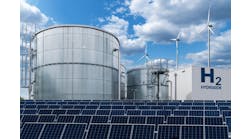Reality Check: Shale Gas Boom Creates Jobs, Local Air and Groundwater Pollution
While the debate surrounding the shale oil boom has been divisive, there's no question it has delivered some quantifiable economic benefits, including new jobs and lower energy costs as well as some definite environmental benefits. What's more, natural gas produces tiny amounts of toxic air polllutants such as sulfur dioxide and mercury when it's burned. Consequently, the move from coal- to natural-gas fired electricity is actually boosting air quality, which in turn enhances public health. There's even a potential boon for the climate, since plants fueled by natural gas release about half the carbon dioxide of their coal-fired counterparts.
However, the opposition to shale gas development has been galvanized by actual instances of local and groundwater pollution. For example, Pinedale, Wyoming has experienced smog concentration on par with Los Angeles as a result of robust shale gas development. Industry experts contend hydraulic fracturing doesn't pollute water when fluids are blasted into shale deposits to release gas. Inspection records in several states show otherwise. Mistakes and accidents in other steps of the process - improper well construction or spills - have led to water contamination.
Naturally, these environmental concerns have shaped public opinion. A Pew Research poll last year found that 49 percent of those surveyed oppose the expanding hydraulic fracturing, 44 percent supported it. New York, with a potential wealth of recoverable gas in Marcellus shale formation, in 2010 became the first state to impose a hydraulic fracking moratorium. Likewise, four Colorado cities voted to oppose it last year. With luck and public favor, fracking opponents will have a statewide moratium on the ballot this fall.
Finally, the Obama administration has developed a methane-reduction plan. There's a growing confidence that the EPA (Environmental Protection Agency) will recognize the needs for limits and will work with states to write laws restricting fracking.
For more on this story, read the original article.



